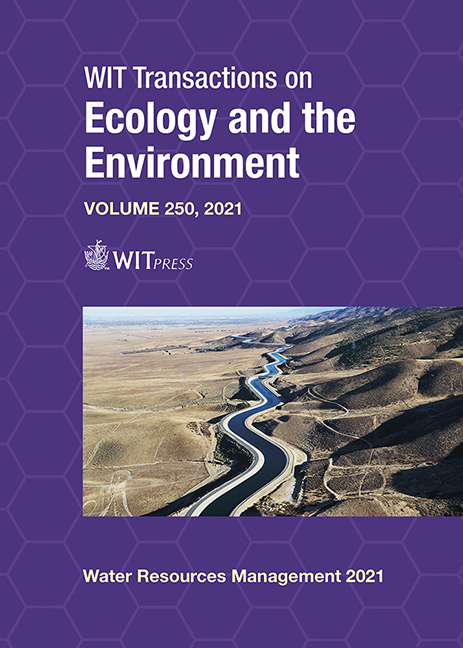WATER GOVERNANCE PERFORMANCE ASSESSMENT OF RIPARIAN COMMUNITIES: A CASE STUDY OF THE VOLTA RIVER BASIN
Price
Free (open access)
Transaction
Volume
250
Pages
11
Page Range
23 - 33
Published
2021
Size
317 kb
Paper DOI
10.2495/WRM210031
Copyright
Author(s)
ABDUL-RAZAK ZAKARIA, KENICHI MATSUI
Abstract
Governance inefficiencies can exacerbate flooding in developing countries and regions where flood protection infrastructures are particularly weak. This is the case in the Volta Basin of western Africa where irregular flood–drought cycles have devastated the livelihoods of riparian communities. It is critical to know how water governance can better respond to floods. This paper assesses water governance performance in the Volta Basin, especially Burkina Faso–Ghana border areas. The discussion is largely based on our original questionnaire survey that sought to understand riparian perceptions and needs regarding four key water governance principles: public participation, gender equity, transparency and regulatory quality. With a five-point Likert-scale, we sought respondents’ level of agreement and or satisfaction regarding statements about these governance principles. Regarding public participation, the results show that 49% of the respondents in Ghana and 42% of those in Burkina Faso thought that their communities were not sufficiently engaged in program implementation. Concerning transparency, 54% and 55% in Ghana thought that it was easy to access information and that decision-making processes were easy to understand. In Burkina Faso, 59% felt it difficult to access information, and 63% was not sure whether decision making processes were easily understood. With regards to regulatory quality, 58% of the respondents in Ghana and 54% of those in Burkina Faso were satisfied with regulatory quality. On gender equity, 72% in Ghana and 78% in Ghana Burkina Faso found it challenging. These findings are discussed in a socio-economic context to illustrate the current status of water governance in the study areas. Based on these findings, we discuss how transboundary water governance in Africa may become more efficient in the future.
Keywords
water governance, public participation, gender equity, transparency, regulatory quality, Volta River Basin, riparian communities’ perceptions, assessment, Burkina Faso, Ghana





